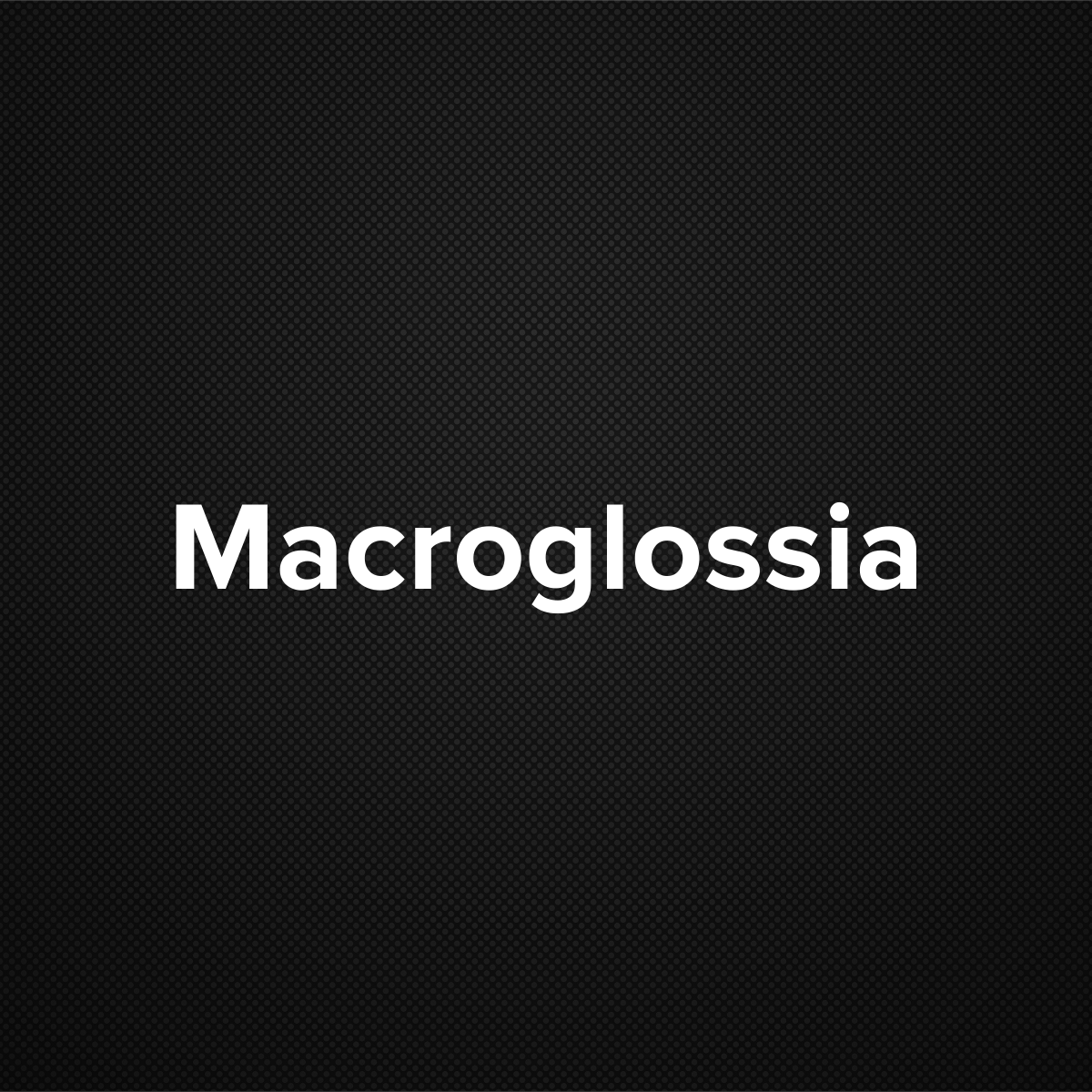Causes and risk factors
A variety of causes can lead to enlargement of the tongue. The causes have been categorized under two sections – those causing true macroglossia while others causing pseudomacroglossia. The enlarged tongue can either be caused due to certain congenital causes or due to some acquired conditions. Studies have shown that this condition can be inherited by some individuals. It is commonly associated with certain genetic disorders like Down syndrome or Beckwith-Wiedemann syndrome. It is also said to be a form of elephantiasis. Various diseases – systemic, inflammatory, or neoplastic can lead to enlarged tongue. The most common among them are diabetes, syphilis, hypothyroidism, cretinism, myxedema, or uremia. Cancerous condition of the thyroid gland, hemangioma, and plastocytoma are some of the other causes. The radiation therapy used during treatment of cancer, injury to the tongue during intubation, and even direct trauma can also cause macroglossia. Macroglossia has also been reported in association with the neurological surgeries carried out on posterior fossa. Pseudomacroglossia can be caused due to enlarged tonsils or adenoids. Low palate, retrognathism, and hypotonia of tongue are some of the other contributing factors.
Clinical presentation:
As the name suggests, the tongue is large. It can protrude beyond the lips. This can lead to its exposure causing drying of tongue. The various functions of the tongue are hampered. The person finds difficulty in speaking, swallowing food and drinks, and even breathing becomes difficult. Dribbling of saliva can occur. Large tongue also causes disturbance in sleep. It leads to obstructed sleep apnea. Apart from all this, it is a matter of worry from a cosmetic point of view. It hampers the facial appearance.
Investigations:
There is no specific diagnostic test for diagnosing macroglossia. Clinical examination itself is diagnostic. However, various investigations can be advised for finding out the underlying causes. These include a swallow test, nasopharyngoscopy, along with CT scan and MRI. The symptoms narrated by the patient along with physical test are conducted by the doctor. Depending upon this certain other routine and specialized investigations can also be advised.
Treatment:
Treating the underlying cause is the main line of treatment. Appropriate treatment modes, either conservative or surgical, are adopted for it. Conservative line of treatment, however, is not effective in case of macroglossia. Surgical intervention is needed. The surgery aims at reducing the size of the tongue and improving its function.










